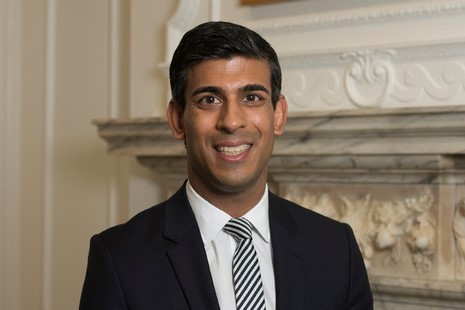Detail of the Government’s coronavirus job retention scheme (CJRS) extension into October has been welcomed, despite fears that the introduction of larger employer contributions could bring a ‘heavy dose of complexity’.
Chancellor of the Exchequer, Rishi Sunak, outlined details of the evolution of the salary support programme in a press conference on Friday (May 29).
He confirmed that the scheme – which could cost the UK Government more than £100 billion – will require employers to pay National Insurance and pension contributions from August, then 10% of their employees’ pay from September, rising to 20% in October.
Workers will be allowed to return to work part-time from July, but with companies paying 100% of wages, Sunak revealed.
ASE chairman, Mike Jones, said that the changes would allow car retailers to “buy some time to assess customer demand levels” before making firm employee redundancy decisions.
He said that the scheme now offered a theoretical opportunity to put people on furlough for three weeks by June 10, then bring them back only part-time once the new option is available from July.
Nigel Morris employment tax director at MHA MacIntyre Hudson also welcomed the extension of the scheme, but suggested that there could be administrative challenges ahead for businesses in the car retail sector.
Morris said: “I’m a massive fan of the incredible support that Rishi, HMRC and the Government are providing with the CJRS.
“I am also pleased that we are able to continue to provide so much well needed support to business to sort through the devil in the detail (and there is a LOT of detail) behind the headlines.
“Extending the CJRS until the end of October, supporting flexible furloughing is very welcome and asking Employers to pay up to 20% and the NIC and pension is reasonable. But, there will be a heavy dose of complexity added to the scheme too, I fear.”
Sunak revealed on Friday that some 8.4 million workers are having 80% of their salaries paid for by the government.
The scheme, originally intended to last until the end of July, pays employees up to 80% of their monthly salary upto a limit of £2,500.
Many car retail groups vowed to pay more than this early on in the COVID-19 coronavirus lockdown.
However, as the financial toll of the stall in car sales continued up to today’s June 1 re-opening of car showrooms across the UK (Northern Ireland sites can open from June 8), retailers have revealed that returning staff to work – amid limited consumer demand – could prove their “biggest challenge”.
Clive Brook group managing director, Clive Brook, said: “It’s fairly obvious. When you bring someone back you have to have the income to justify their place in the business. It’s a fine financial balance to strike.
“Without doubt, managing the return to work will be the biggest challenge, financially, for the automotive retail sector.”
Cambria Automobiles chief executive Mark Lavery has conceded that “over 100 redundancies” are possible within his AM100 car retail group when the Government's coronavirus job retention scheme’s (CJRS) furlough period ends.
Lavery said “there will be significantly fewer of us and we’ll return to a significantly changed business”.
Lavery said that he expects “Darwinian evolution” of the car retail sector with up to 25% to 30% of car retail businesses to go out of business or be taken over within the next two years as the effects of the pandemic continue to take their toll.
Speaking to AM following publication of an interim results statement for the six-month period to February 29, which was published today (May 6), he said: “We don’t yet know whether what we are facing is a recession or a depression.”
















Login to comment
Comments
No comments have been made yet.